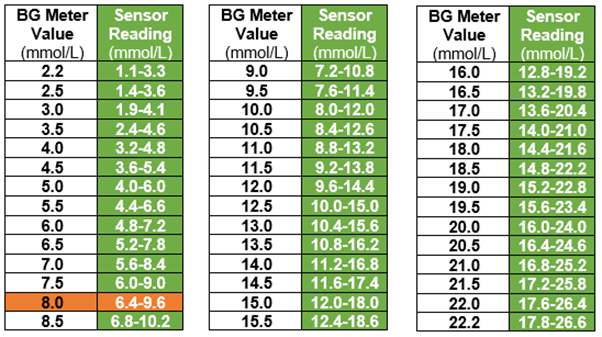To me the modern CGM sensor seems to be a techie miracle. The fact that the little bit of wire stuck in to your interstitial fluid reacts to produce a tiny electric current and then do this consistently for 10 or 14 days is amazing. Over the last 6 years I have used G5, Libre 1, Libre 2 and am now trying G6.
The one thing I can say with conviction is that every sensor is different. the odd one is almost perfect but the next one can be a bit rubbish. However I have had very few bad enough to be replaced. My consultant, who is also type 1 and has tried everything says he could not say any one was better between Libre 2 and 3 and G6 and G7.
I am currently wearing a Libre 2 and a G6. I am reading the Libre 3 ways. First with the German patch on to xDrip, second with the MiaoMiao transmitter on to xDrip on a second phone and then using NFC and LibreLink. All 3 readings are different even though I calibrate the xDrip ones. The differences are generally within 1.5 mmoll/ml at the lower end but sometimes 2 or 3 when 12 or above.
I would say that if you are getting a variation of more than 2.5 mmoll when below 6. Then this is potentially dangerous.
There are various reasons why one person may have a different experience to another. One is the persons physiology then the make of phone and operating system. Then which version of Android and IOS they are running.
I was unable to get my fitbit watch to show my blood sugar until I changed to a new phone. For the last week it has been running perfectly. Somehow my original phone did not seem to be connecting reliably even though they were both Android devices.
Dexcom of course has a list of compatible devices and my new phone is one of these. In theory this means they should be able to help you with any problems and are likely to have previous knowledge.
An interesting comment from Bill-ST
about the inaccuracy of blood glucose strips. The actual standards they have to meet are really quite low and when you add to that the sensor itself is out by an average of 10% you realize that what looks so compelling on your phone's screen is a bit of a rough guess. However much better than anything that has gone before. However everyone should get the most accurate kit they can to improve their outcomes over the coming decades.
I have an article on a blogsite I used to run called bgonmywatch.com. The article is titled "Calibration needs accurate blood glucose meters" that goes in to this in more detail with links to various meter surveys.
The most accurate meter is generally accepted to be the Contour Next with a Mard of around 5. (With Mard the lower number the better)




